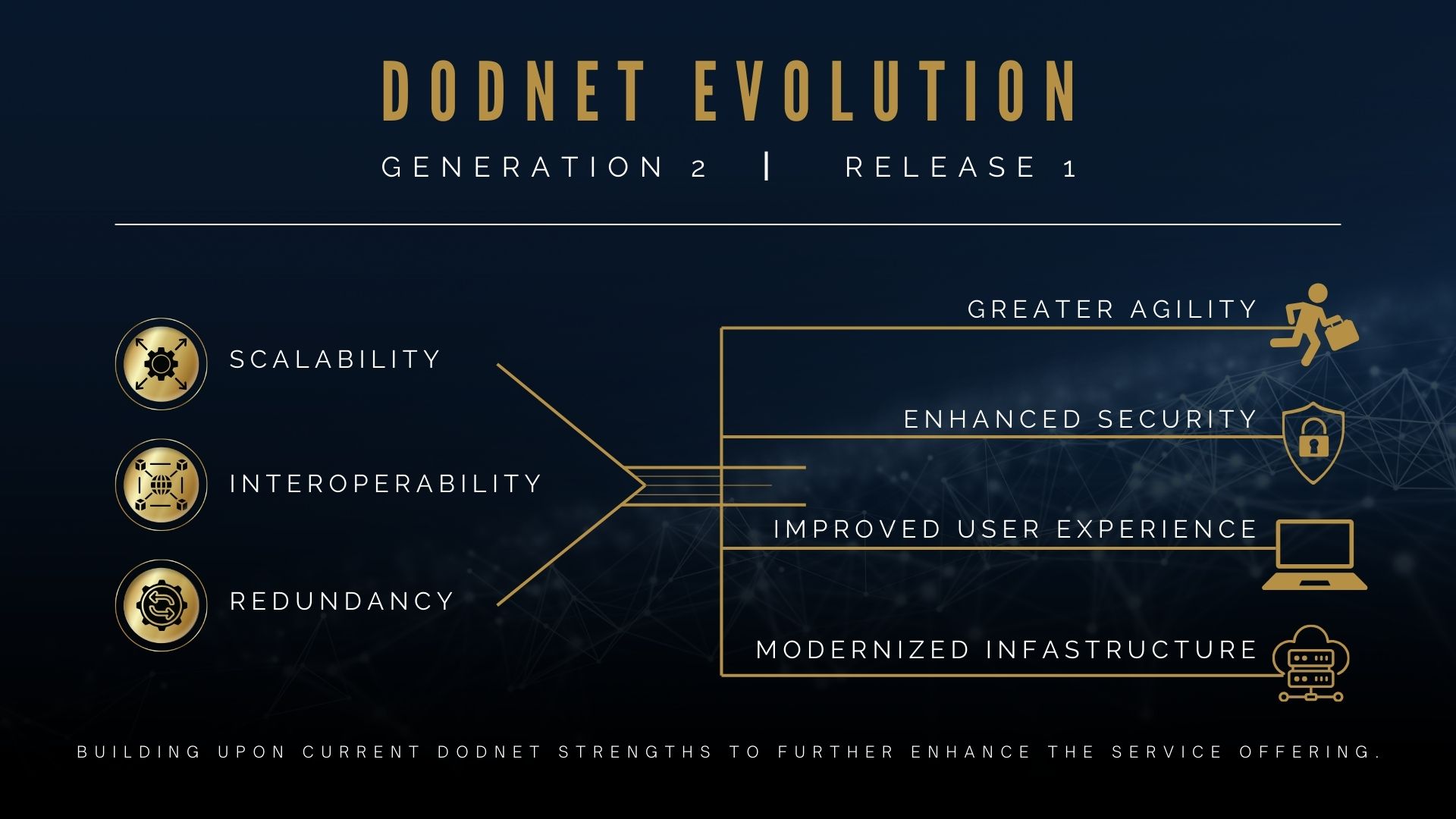DISA’s DoDNet Program Office drives progress in the next pivotal phase of network optimization
By Apprill Walden, DISA Endpoint and Global Services / Michelle Ferris, Leidos
August 16, 2024

The Defense Information Systems Agency is advancing the migration of users to its modernized network, DoDNet, as part of the Defense Enclave Services program, under the broader Fourth Estate Network Optimization initiative. This effort is critical in enhancing the user experience and ensuring that Defense Agencies and Field Activities operate on a secure, reliable and resilient network.
Over the past two years, DISA, in partnership with Leidos, has made significant strides in migrating users from legacy systems to DoDNet. This standardized and consolidated network now supports over 32,000 users and workstations, including those from DISANet, the Defense POW/MIA Accounting Agency, and the Defense Technical Information Center. By streamlining these disparate networks into a single, optimized environment, DISA has enabled these organizations to access common applications and tools that support resilient, flexible capabilities for current and future defense operations.
DISA’s approach to user migration is gaining momentum, with a continued focus on leveraging emerging technologies to enhance DoDNet capabilities. This includes accelerating the onboarding process for DAFAs, making migrations faster, more seamless and more efficient.
In June, DISA reached a significant milestone with the Initial Operating Capability of DoDNet Generation 2. This release launched a secure cloud environment that adds scalability, interoperability and redundancy to support a growing user base. The new capabilities introduced with DoDNet Generation 2 are designed to improve cyber hygiene, allowing DAFAs to enhance their security posture while reducing exposure to global cyber threats.
“With DoDNet Generation 2 Release 1, we are positioned to accelerate DAFA migrations while meeting operational and cybersecurity requirements,” said Carissa Landymore, DoDNet program manager.
“Our team has worked exceptionally hard to evolve the network, and we are proud of the progress made toward supporting the mission,” she continued.
DoDNet Generation 2 Release 1 introduces several key features that directly impact user migration:
- Unified Endpoint Management: UEM automates the onboarding process, significantly increasing the velocity and capacity of DAFA user migrations. This capability enables the bulk migration of thousands of users per day and supports cloud-native unified device management, allowing for rapid deployment and scaling to accommodate a large user base.
- Virtual Desktop-as-a-Service: The new vDaaS solution provides improved, scalable access to Non-classified Internet Protocol Router Network systems for remote users within the continental U.S. across multiple platforms and devices. This service facilitates smoother transitions for users by maintaining accessibility and continuity during migrations. An adjacent capability for Secret Internet Protocol Router Network and outside the contiguous U.S. remote users is slated for release soon.
- Network Management and Automation: Automation tools now allow for more efficient management of critical communications protocols during user migrations. This feature includes automated workflows that update and deploy network devices on DoDNet, ensuring that new users are quickly integrated into the network with minimal disruption.
- Operational Support Systems and Observability: This capability provides real-time visibility into service availability and related metrics during user migrations, further optimizing operations and enhancing the end-user experience for DAFAs.
“The Leidos DES team is focused on delivering resilient and flexible capabilities at scale and speed to ensure DISA and the DAFAs can migrate users efficiently and effectively,” said Chad Buechel, vice president and division manager at Leidos.
With these enhancements fully implemented, DISA is well-positioned to migrate the next group of DAFAs to DoDNet. Eight DAFAs are currently in the discovery and planning phases, with six migrations projected to commence in FY25. DISA expects to migrate over 143,000 NIPR/SIPR users to DoDNet by the end of FY26.
“We are using a multi-phased approach to accelerate the overall migration process to DoDNet by working in parallel to deploy the networks and user endpoints,” said Landymore.“Pre-installing equipment and updates ahead of each migration ensures a smoother and more efficient transition, as demonstrated by our recent progress,” she added.
DISA and Leidos have focused on capturing lessons learned during each migration to refine their approach, streamline the feedback loop, and improve communication. These efforts have led to tangible results, such as the Defense Finance and Accounting Service completing its virtual discovery process 25% ahead of schedule. This success was attributed to the strong collaboration between the Defense Finance and Accounting Service and the DoDNet discovery team, along with enhancements in tracking, validating and incorporating discovery information.
To further support user migration, DISA hosted the first monthly DAFA meeting this month, bringing together liaison program managers and DoDNet leadership. These meetings serve as an open forum to share program updates, discuss lessons learned, and address concerns with clear paths to resolution.
“We are committed to advancing DoDNet’s capabilities to ensure a smooth transition for all users,” said Buechel. “By balancing speed, agility and control, we aim to bring every user to the finish line on DoDNet, ready to leverage optimized, secure services that enhance their mission effectiveness.”
As DoDNet expands to include more users in the coming months, defense agencies will benefit from a network with reduced complexity, common IT services and lower overhead costs, allowing them to focus more effectively on their primary missions.